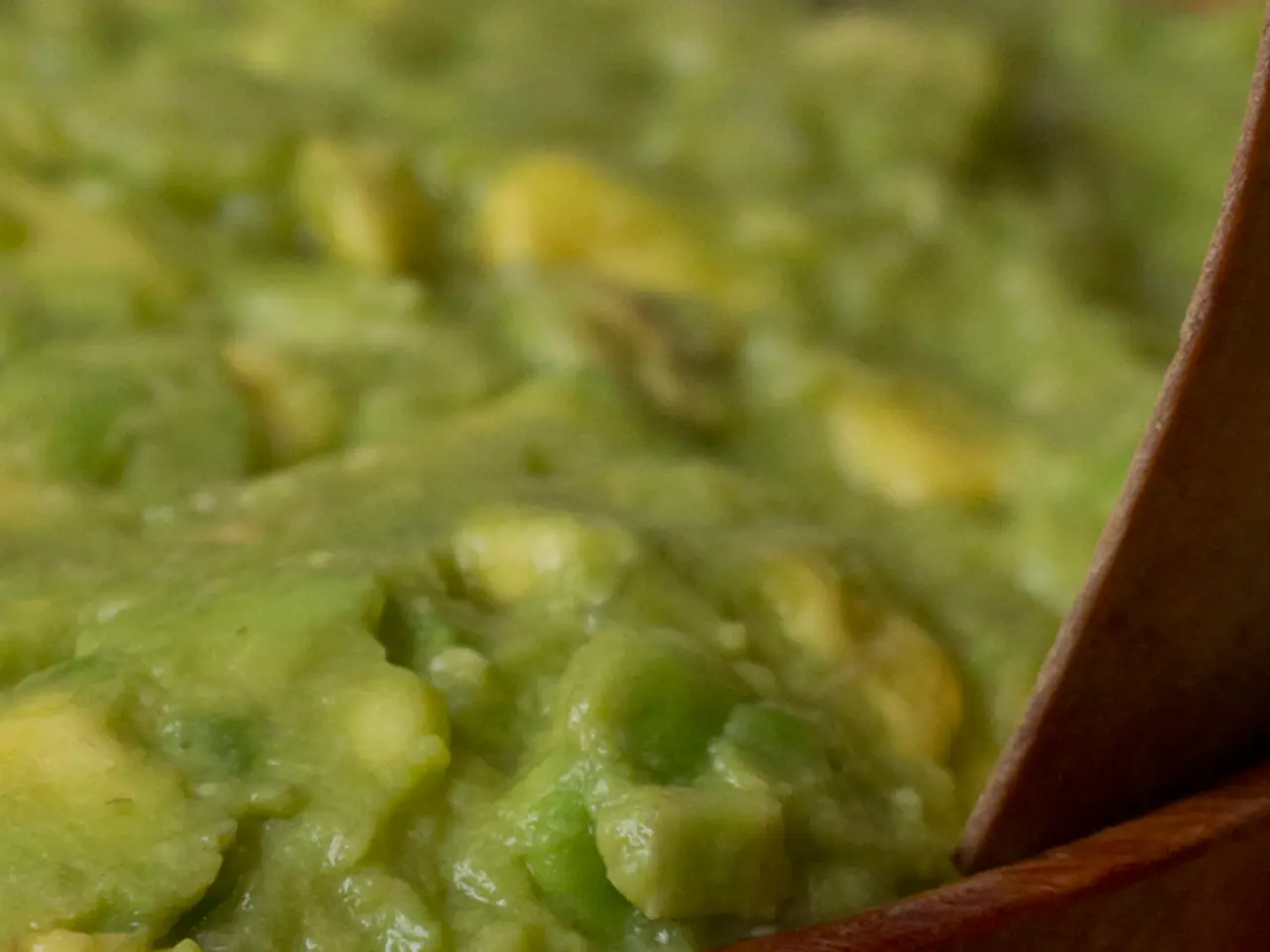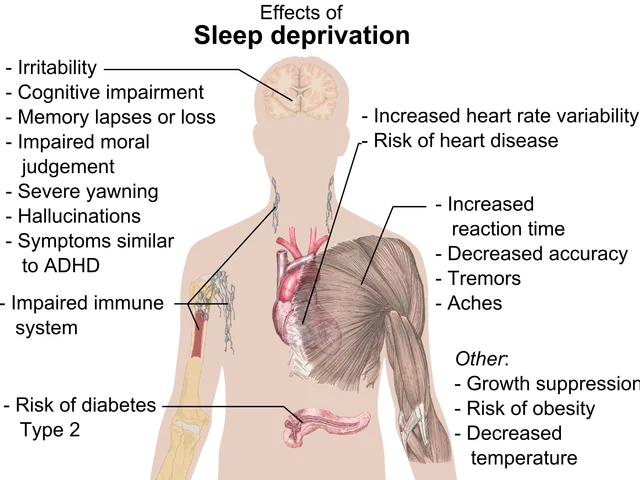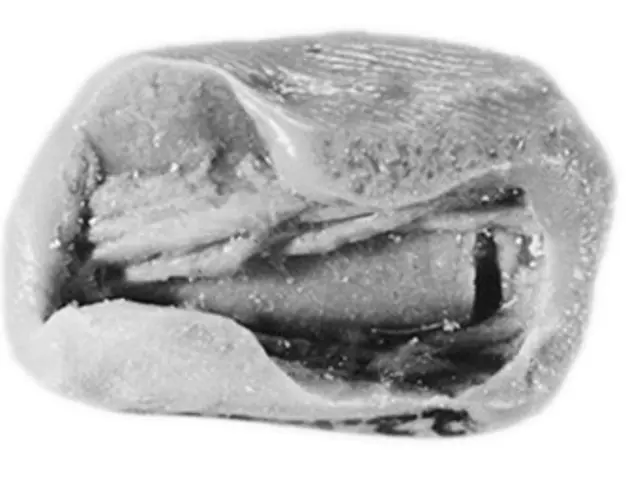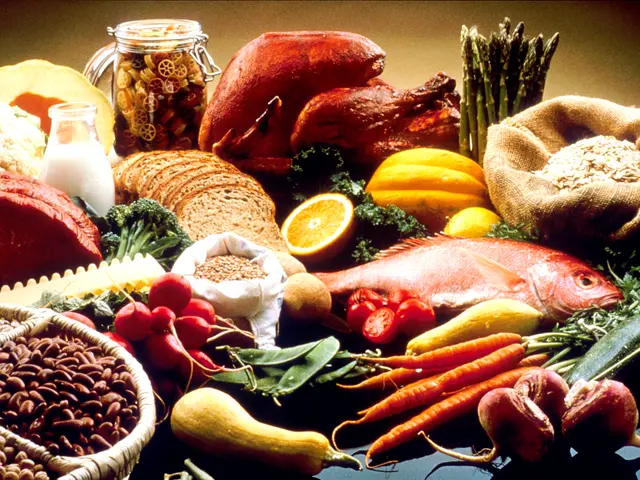Managing Constipation with Diet: A Guide
Connection between cottage cheese consumption and constipation: Examination of potential relationship
Constipation can be a common issue, and certain foods play a significant role in either alleviating or exacerbating this problem. Here's a breakdown of foods to avoid and those to embrace for a healthier digestive system.
Foods to Limit or Avoid
- Dairy Products: For individuals with lactose intolerance, consuming dairy products like milk can lead to digestive issues due to undigested lactose reaching the large intestine. However, cottage cheese, when consumed in moderation, might not be as problematic.
- Fried and Processed Foods: High-fat foods such as fried foods and processed meats can be difficult to digest and may worsen constipation.
- Refined Carbohydrates: Items like white bread, pasta, and pastries have low fiber content and can contribute to or worsen constipation.
- Caffeine: Excessive caffeine intake can lead to dehydration, which may contribute to constipation.
High-Fiber Foods to Incorporate
Increasing fiber intake can help relieve constipation by making stools softer and easier to pass. Some high-fiber foods include:
- Fruits: Apples, apricots, berries, figs, mangos, oranges, pears, and plums are excellent sources of fiber.
- Vegetables: Leafy greens, broccoli, and carrots are all high in fiber.
- Legumes: Beans, peas, and lentils are rich in fiber and can help regulate bowel movements.
- Whole Grains: Brown rice, oats, quinoa, and whole wheat bread are good sources of fiber.
- Nuts and Seeds: Almonds, chia seeds, and flaxseeds also contain significant amounts of fiber.
- High-Fiber Cereals: There are many breakfast cereals that are specifically formulated to be high in fiber.
It's important to gradually increase fiber intake to allow the digestive system to adjust and minimize discomfort like bloating or gas.
Cottage Cheese and Constipation
Cottage cheese contains no dietary fiber, with a serving of 4 ounces containing 0 grams. Consuming it alone may increase the risk of constipation. However, when combined with high-fiber foods, cottage cheese can be enjoyed without the side effect of constipation.
Dairy and the Gut Microbiota
Dairy products, including cottage cheese, may have a beneficial effect on the gut microbiota. This suggests that moderate consumption of dairy may not be as detrimental to digestive health as previously thought.
High Sodium Levels and Constipation
Consuming high levels of salt can cause the body to absorb water from the intestines, leading to constipation. The World Health Organisation recommends that adults consume no more than 2,300 milligrams of sodium per day.
In conclusion, a balanced diet rich in high-fiber foods can help alleviate constipation. By gradually adding fiber to one's diet and increasing water intake, individuals can improve their digestive health and reduce the risk of constipation.
- Cottage cheese, despite being low in fiber, can increase the risk of constipation when consumed alone, but when combined with high-fiber foods, it can be enjoyed without the side effect.
- Gut microbiota can potentially benefit from the moderate consumption of dairy products, including cottage cheese, suggesting that their negative impact on digestive health may not be as extensive as previously thought.
- High sodium intake can lead to the absorption of water from the intestines, potentially increasing the risk of constipation, and the World Health Organisation recommends adults limit their daily sodium intake to 2,300 milligrams.
- Increasing fiber intake can help relieve constipation by making stools softer and easier to pass, and some high-fiber foods include fruits, vegetables, legumes, whole grains, nuts, seeds, and high-fiber cereals, which can improve overall digestive health and wellness.





